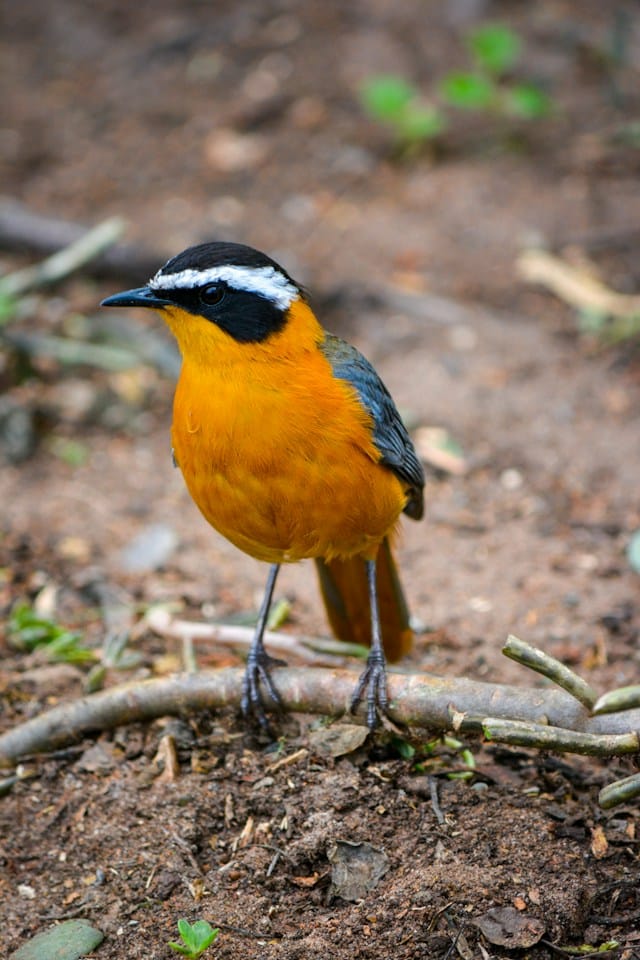What Are the Best Practices for Winter Care of Outdoor Aviary Birds?

When the winter chill sets in, you may find yourselves wondering how you can keep your aviary birds warm, healthy and content. Whether you are a pet bird lover or an aviary owner, it’s crucial to consider the unique needs of your birds during the colder months. From heating to feeding, there are several aspects to consider when it comes to caring for your avian friends during winter. This article will delve into the best practices for winter care of outdoor aviary birds, paying close attention to heating, feeding, and health care.
Heating: Keeping the Aviary Warm
Firstly, it’s important to note that not all birds handle cold well. For instance, tropical birds like parrots might find winters particularly challenging. While some birds have adapted to survive in cold climates, others will require your support to keep warm.
A lire également : How to Manage Chronic Kidney Disease in Aging Cats?
A well-insulated aviary is crucial. Make sure your birds’ home is well-constructed to prevent drafts, while still allowing for proper ventilation. The cage should be set up in a sunny spot that also offers protection from prevailing winds and frost. You may want to consider enclosing the aviary or adding a windbreak.
To provide warmth, an aviary heating device is often necessary, especially for tropical birds. There are different kinds of heaters designed for aviaries. Some can heat up an entire aviary; others are made to warm specific areas. Heat lamps can be a good choice, but remember to secure them properly to avoid any accidents.
Avez-vous vu cela : Best cat breeds for an apartment
Lastly, be careful not to overheat the aviary. Birds should have the freedom to escape from the heat if they want to. Monitoring the temperature and adjusting the heat accordingly will help ensure their comfort.
Food and Water: Keeping the Aviary Fed
Just as we humans need more calories to keep us warm during winter, birds also need extra food during the colder months. Increasing the portion size of their regular diet is a good start.
Birds also need high-energy food in winter, and fat and seed-based foods are ideal. Offering a mixture of seeds will cater to different bird species’ preferences. You can hang feeders in several places to encourage the birds to move around and stay warm. Don’t forget to regularly clean the feeders to prevent diseases.
Water is also crucial. Birds need fresh water for drinking and bathing even in winter. Ensure that their water doesn’t freeze over. You can use heated birdbaths or pet-safe water de-icers to keep the water at a moderate temperature.
Health Care: Keeping the Aviary Healthy
Winter can be tough on birds’ health. The risk of disease can increase due to the cold and birds being in close proximity to one another. Observing your birds regularly for signs of illness is vital. Look out for changes in behavior, eating habits, or appearance.
Keep the aviary clean and dry to prevent diseases. Regularly remove waste and discarded food. You might need to clean the aviary more often in winter as damp conditions can lead to the growth of mold and bacteria.
Furthermore, birds can suffer from frostbite and hypothermia, just like us humans. Birds that are fluffed up, lethargic, or have discolored feet might be showing signs of cold-related illness. If you notice any of these signs, seek help from a vet immediately.
Mental Stimulation: Keeping the Aviary Engaged
Lastly, remember that birds need more than physical care; they also need mental stimulation. Birds that are bored can become stressed, which can lead to health problems.
Provide toys for your birds to play with. Rotating toys can also help keep things interesting for them. Interactive toys that require birds to solve a problem to get a treat can be excellent for mental stimulation.
Finally, spend time with your birds. Talk to them, play some bird-friendly music, or let them watch bird videos. Remember, a content bird is more likely to be a healthy bird.
Keeping aviary birds in winter can be a challenge, but with proper care and attention, your feathered friends can thrive even in the coldest months. Keep them warm, well-fed, healthy, and engaged, and they’ll reward you with their vibrant colors and joyful songs all winter long.
Bird Accessories and Adjustments: Ensuring Winter Comfort
During the winter months, specific bird accessories and adjustments to the bird cage can greatly enhance the comfort of your pet birds. One accessory to consider is a bird collar. While primarily used to prevent birds from picking at their feathers, a larger size bird collar can help retain heat, keeping your birds warm during those colder days and nights. Make certain to choose a bird-safe collar, free from any harmful materials.
You may also want to consider larger bird cages that allow the birds to move around and generate body heat. The cage should be roomy enough for them to fly a short distance. Bear in mind, however, if the bird cage is too large it may not hold heat well.
In addition to a larger size bird cage, a cage cover can assist in keeping the cold out, while retaining heat inside. Ensure the cover is breathable, yet thick enough to provide insulation. The neck hole of the cage cover should be properly secured to prevent drafts while still ensuring ventilation.
For wild birds that visit your garden or backyard, providing bird seed within a protected area can help them stay warm. Consider adding a cone bird feeder filled with bird food during these winter months. A fringy cone feeder can also offer shelter, keeping food dry and accessible for these wild visitors.
Exotic Pet Birds: Special Care during Winter
Exotic birds need extra attention and care in winter. The sudden drop in temperature can be quite challenging for them, and they rely on their owners to keep them safe and comfortable.
To keep your exotic pet bird warm, you may want to bring them inside during the coldest times of the day. If this isn’t possible, ensure the aviary is well-insulated and heated. A heated perch can be a great addition to the bird cage, providing a warm spot for your bird to rest.
Exotic birds also need a diet high in energy during the colder months. Modify their bird food to include more seeds and fats to provide the necessary calories that they need to stay warm.
Finally, these beautiful creatures need mental stimulation to stay healthy. Providing a variety of toys can help them stay active and beat the winter blues. This can be as simple as a bell they can ring, or a puzzle toy that dispenses treats when solved.
Conclusion: Attentive Care for Winter Months
Winter can certainly pose a challenge for aviary bird care. However, with diligent attention to their heating, food and water, health care and mental stimulation needs, these lovely creatures can remain healthy and content.
Making necessary adjustments to the bird cage and supplying bird-safe accessories can significantly improve their comfort in the cold. Special care should be given to exotic pet birds who are not naturally equipped to handle cold temperatures.
Remember to keep an eye on your birds’ behaviour for any signs of discomfort or illness. With these best practices, your aviary birds, whether pet or wild, can not only survive but thrive in the winter months. Their vibrant colors and joyful songs will be your reward for your attentive and loving care.
